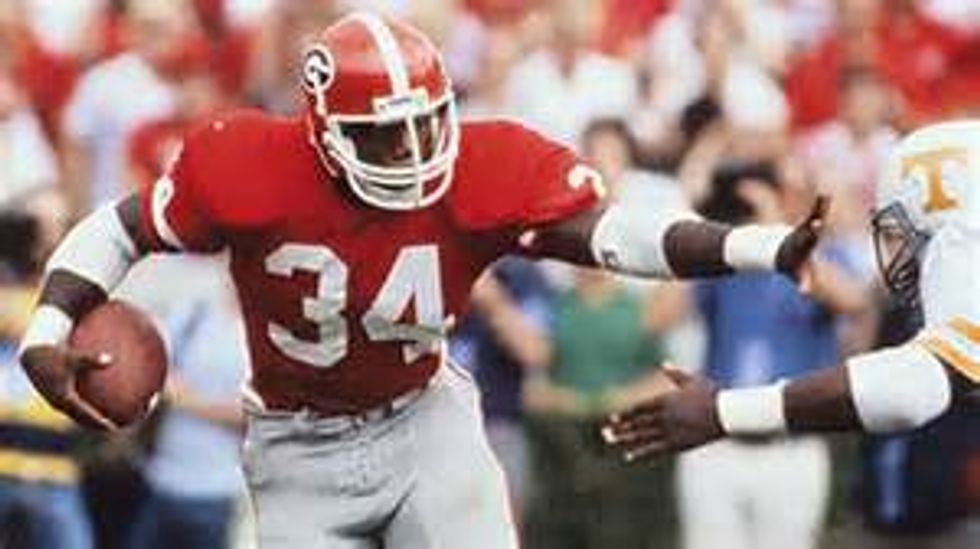There’s no denying that sports are a HUGE aspect of American culture. For many people in our society, sports are a way in which we find a piece of our identity, not just individuals, but our nation as a whole. We sing the national anthem before most sporting events, professional teams are invited to the White House after a winning a national title, and many U.S. cities have found comradery around a central sport, team or league. Throughout history, sports have brought our nation together, in times of turmoil, in times of civil rights issues and in times of global tension. Sports have served as a platform for opportunity in our country. Opportunity for all- to receive an education, to represent a whole entity and to be a part of something bigger than ourselves. Sports have not always promoted unity, however. There have been many dark moments in our countries history, defined by discrimination and animosity toward minority groups…but, again, that which once separated would one day unify a multitude...
The 1960's were without a doubt defined as the decade of Civil Rights movements. At a time when people were judged by the color of their skin and not the content of their character, sports—which were just as important in society then as they are now—proved to be one of the most popular platforms for racial discrimination. Years after Brown vs. the Board of Education, which ruled that "separate but equal" is unconstitutional, racial segregation still existed in many schools, predominately southern schools. Many schools in the south prided themselves on the fact that they were still segregated, and collegiate sports teams were especially stern on the matter. Highly eligible players were turned away time and time again… and all for skin color? This basis seems so ignorant now. The University of Alabama, under coach Bear Bryant, was one of the last schools to end segregation. That is, until a certain football game which would influence the history of college sports forever.
On September 12, 1970 The University of Alabama played the University of Sou
 thern California (a team who was known to
have many African American players) and they lost 42-21. In that game, USC’s
African American player Sam Cunningham, would set a precedent in college
football, and all sports for that matter, by completing an astonishing 135
rushing yards and 2 touchdowns against an “all white” team. University of Alabama coach Bear Bryan was even quoted saying, "Cunningham did more for integration in Alabama in 60 minutes than Martin Luther King Jr," which is arguably not true, but certainly depicts just how revolutionary this game was. People were
shocked. People were dumbfounded. When the community that was built around
football, success and racial pride was defeated on the football field, it’s
safe to say hearts were changed for the better. The rest
is history.
thern California (a team who was known to
have many African American players) and they lost 42-21. In that game, USC’s
African American player Sam Cunningham, would set a precedent in college
football, and all sports for that matter, by completing an astonishing 135
rushing yards and 2 touchdowns against an “all white” team. University of Alabama coach Bear Bryan was even quoted saying, "Cunningham did more for integration in Alabama in 60 minutes than Martin Luther King Jr," which is arguably not true, but certainly depicts just how revolutionary this game was. People were
shocked. People were dumbfounded. When the community that was built around
football, success and racial pride was defeated on the football field, it’s
safe to say hearts were changed for the better. The rest
is history. 
Sports have brought us together on other issues as well. From the recent LGBT debates with athletes bravely “coming out” to the public, as well as the Olympic Games which have been a platform for reformation and U.S. pride throughout history. Individuals everywhere are taking a stance to promote equality and peace. We have certainly come a long way as a nation. While we still have much to work on, we can proudly say that some of our most influential athletes were once considered marginal individuals whose rights were either denied or were highly criticized. Discrimination still exists, but as a generation, we have the ability to end it for good.
Some of the best athletes to
"I have a dream that my four little children will one day live in a nation where they will not be judged by the color of their skin, but by the content of their character."
Martin Luther King, Jr.











































